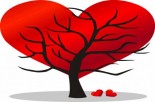Search Podcasts
Nutritional Support for Detoxification & Hormone Balance
Wednesday, 06 May 2015While the body continually works to deactivate and eliminate harmful substances, the sheer volume may challenge even the most optimally functioning detoxification systems. The body's ability to deal with these substances may be further compromised by nutrient deficiencies in the diet, lack of exercise, and stress.
The following nutrients are critical in aiding the body's natural processes for restoring cellular health, adrenal function, and hormone balance...
New Year, New You… NOT!
Sunday, 25 January 2015Sure, I get it. The slogan we hear year after year, "New Year, New You" is catchy.
It's got the marketing marvel of simplicity and succinctness as well as the installation of hope to stick to those robust resolutions of becoming, a "NEW YOU".
It may be catchy, but the slogan is dead WRONG and it's a set up. This might be big news, but "YOU" are the same "YOU" January 1st 2015 that you were at 11:59 pm December 31st, 2014 and that is a good thing!
The Dairy Free Guide To Calcium
Sunday, 18 January 2015Dr. Holly welcomes health coach, Sarah Corey, as a guest blogger this week. For more from Sarah and Dr. Holly on this topic, listen to their conversation about Your Dairy-Free Guide to Calcium
Now, here's Sarah:
As children many of us were told the only way to grow up big and strong was to drink a glass of milk with every meal. Dairy however is notoriously hard to digest and many people are finding their bodies function better without it.
There are estimates that as many as 6 out of 10 people react negatively to dairy.
Even if you’re not lactose intolerant, meaning you lack the enzymes that digest the lactose, or milk sugar, you can still react negatively to milk. Common digestive symptoms indicating you may have issues with dairy include gas, bloating, and loose stools. For some it can also show up as rashes, acne, eczema, or chronic sinusitis.
Removing dairy from your diet may be scary at first, especially as many people are concerned that this is their only source of calcium intake. The good news is that you naturally get calcium in your diet without even trying, and there are a variety of healthy choices you can make to ensure proper calcium levels in your body sans dairy.
Is Night Lighting Making You Fat, Tired & Depressed?
Wednesday, 15 October 2014Dr. Holly welcomes health coach, Sarah Corey, as a guest blogger this week. For more from Sarah and Dr. Holly on this topic, listen to their conversation about Struggling to Sleep: Is there Too Much Light in Your Bedroom?
Now, here's Sarah:
We all know that getting a good night sleep is an important part of a healthy lifestyle. Studies continuously show that achieving 7-9 hours of restful sleep nightly can have many health benefits including reduced the risk of chronic diseases, stress relief, improved cognitive function, weight control and even weight loss.
In our every connected digital age many of us are being exposed to light by our devices right up until the moment we get into bed, and for many of us, we even take these devices in bed! All light can disturb our sleep, however the light omitting from laptops, iphones and ipads is blue wave light, a wavelength that can be most destructive to our sleep cycle.
This light inhibits our pineal gland from releasing a hormone called melatonin, which helps reduce alertness and put you to sleep. At a very basic level melatonin production is stimulated by darkness and inhibited by light.
While light affects our sleep and health in many ways, there are four main ways that this lack of sleep may be affected our bodies:
Nothing is Textbook
Thursday, 25 September 2014I competed in a charity Crossfit competition this past week called "Barbells For Boobs", a non-profit organization who provides funding to breast centers globally through their Mammograms in Action ® Grant Program as a "last resort" resource for thousands of people who do not qualify for government funding or other charitable resources in the detection of breast cancer.
My workout a partner and I took home first place for the best costume, I was "Dr. WOD" and she was "Nurse No-Rep" (insert pic here) and we didn't do too badly on the work out either.
The "Barbell For Boobs" story, which was told at the beginning of the day along with our movement standards, got my head shaking in a confirmatory YES way and brought me to tears. Sara, the woman who started this charity explained that her best friend at the age of 26 presented to a breast clinic because she had little funds but had noticed a lump on her breast. The clinic sent her away and told her to come back when she was 40 years old because that is when you have your first mammogram.
Sure enough, this young lady was soon diagnosed with breast cancer within weeks.
10 Specific Foods & Nutrients to Support Your Detoxification Pathways
Monday, 18 August 2014Stress is Damaging Your Digestion & Your Health
Monday, 01 September 2014......................................
We are constantly surrounded by stress. Just being alive is a stress on our bodies.
Pile on the unreasonably high levels of chronic stress many of us are under in our daily lives and this can start to reek havoc on our bodies. Science indicates that
stress affects four major systems in the body, our digestion, our immune systems, our hormones, and our nervous system.
The Healthy Benefits of Lifting Weights
Wednesday, 30 July 2014Hormone Replacement Therapy (HRT): Let's Think This Through
Friday, 02 May 2014As a Naturopathic Doctor I have been taught to think about health and healing in a very comprehensive, holistic manner.
The science that drives my thought process is called Vitalism. Vitalism states that our bodies have an inherent self-healing mechanism and are brilliant and built to stay in balance through the harmonious efforts of many interrelated systems that are constantly working on our behalf to take care of us.
As a practitioner of this style of medicine, I am challenged to listen and ask deeper questions when I am involved with a patient who has become entirely out of balance and therefore symptomatic. Symptoms are the body’s way of talking to us, telling us that something needs attention. I have to understand where there might be obstacles to cure, where there might be some excess or deficiencies, and then work with the body to achieve a state of health.
What Your Food Looks Like Can Help Your Digestion
Monday, 03 February 2014
We used to have a saying in school: "HEAL THE HOLE". Because so much of one's overall health depends on taking in nutrients, assimilating, digesting and absorbing them in order to have optimal health. Digestion truly is the key to being well and vital.
Did you ever hear that digestion actually starts in the mouth, not in the stomach?
Well guess what? Neither of those places is where the mighty and imperative digestive process can and should begin.
Digestion actually starts in the eyes and in the nose. Yes, I said the eyes and the nose.
Modern Day Thyroid: Thinking Things Through
Thursday, 30 January 2014Have you been feeling a little "off" lately? Lack of energy, always feeling cold, trouble concentrating, or unexplained weight gain could be a sign of an underactive thyroid. According to the American Association of Clinical Endocrinologists, upwards of 27 million Americans suffer from some type of thyroid disorder. Of those, it's estimated that half remain undiagnosed.
Misdiagnosed and Misunderstood
Hailed as "the master" of our endocrine system, second only to the pituitary, the thyroid is a small gland shaped like the outspread wings of a butterfly that sits at the base of the throat. It excretes two hormones - thyroxine (also known as T4) and triiodothyronine (or T3) - that regulate metabolism within every cell in the body.
Low levels of these hormones slow everything down, and it's why symptoms of hypothyroidism often include weight gain and fatigue, as well as constipation, depression, irritability, low body temperature, sleep disturbances, forgetfulness, edema (fluid retention), hair loss, decreased libido, joint pain, and a hoarse voice.
Yet, because these symptoms can resemble a host of other diseases, the thyroid is often overlooked by physicians.
Leaky Gut & A Possible Connection to Hot Flashes
Friday, 13 December 2013Intestinal permeability describes a cascade of symptoms and disorders that stem from small intestine's semi-permeable membrane becoming excessively permeable for a variety of reasons, allowing infiltration of microbial and metabolic toxins (as well as undigested food) into the bloodstream. These symptoms include fatigue, immune deficiency, food allergies, asthma and eczema.
Intestinal permeability may also be a contributor to other modern illnesses such as insulin resistance, obesity, neurotransmitter disorders, autoimmune disorders and cancer. In fact, it may account for 50 percent of chronic illness.
One symptom that I have not linked to intestinal permeability in the past, which has been getting my attention lately, is the vasomotor symptoms such as hot flashes and night sweats, an overlooked aspect of inflammation.
About Those Statins
Thursday, 05 December 2013I am fortunate to have a fascinating and amazing regular contributor, Dr. Jacob Tietlbaum MD, join me every week to talk about easy, effective, natural ways to help people take back control and manage their health. Jacob and I were talking very passionately about the newest recommendations, handed down from a government agency, which suggested (based on a faulty calculation) that many more people would be candidates for taking statin medications.
We both were fairly incensed about this notion, knowing that statin medications come with serious risks and side effects and research has shown that there are many common lifestyle choices that are far more likely to be associated with a lower risk of heart attack and heart attack death than taking statins medications. Some of these include eating chocolate, participating in regular exercise, getting adequate nutrition and having cats. YES, having cats.
Effective Non-Hormonal Therapies for Menopausal Symptoms
Wednesday, 27 November 2013However, mounting evidence from several clinical trials has shown that women using synthetic HRT are at significant increased risk of developing breast cancer, coronary heart disease, pulmonary embolism, and stroke.
With little room for HRT in current practice and little else in the traditional medicine chest to consider, physicians are increasingly turning to natural non-hormonal therapies for women who need relief from menopausal symptoms.
As a naturopathic physician, I have used botanical medicines and other natural alternatives for many years with great success to help women create and maintain hormonal health. I've found the most effective approach combines stress management, diet, exercise and nutritional supplements to support and work with a woman's body, not against it. While each patient's treatment plan is unique, it has been my experience that most symptoms caused by menopause and/or hormone fluctuations and imbalances will respond to natural therapies.
How to Keep Your Cool When You Feel Like a Stress-Ball
Saturday, 09 November 2013With today's stressors being multiple, constant and prolonged it is quite easy to loose one's cool, which unfortunately, just makes any situation worse.
I call it having a "short fuse syndrome".
So how can you keep your cool and "lengthen your fuse" during times of strife such as your commute in terrible traffic, with angry clients or terrible customer service agents, with aggressive co-workers or with fussy family member? Believe it or not, the answer is in your brain. Yes, your brain!
Our brain is equipped with two sides of a nervous system. The sympathetic nervous system is that which control our response to these multiple, constant and prolonged stressors, our fight or flight is carried out here. On the other side, the parasympathetic rules our ability to rest, relax and repair.
Estrogen Dominance: Too Much of a Good Thing Can Be BAD
Thursday, 31 October 2013Estrogen dominance is a multi-factorial situation and is caused by such things as exposure to excess environmental xenoestrogens, use of synthetic estrogens such as the birth control pill and hormone replacement therapy (HRT), anovulation (lack of ovulation during menstrual cycle, which is not uncommon among women older than 35), digestion issues (which tax the estrogen-detoxification process in the liver), unrelenting stress (which strains the adrenals and the thyroid), unresolved emotional issues, poor diet and negative lifestyle factors such as smoking and alcohol use.
How does estrogen dominance specifically alter women's health?
No Shirt, No Shoes, No Service: 4 Tips for Unplugging
Friday, 11 October 2013What I wouldn't give to have that sign hanging almost everywhere these days!
Well, ok...the shirt thing is questionable.
But having no shoes on, feeling the great earth and warm grass underneath my feet and having no service by not having access to the electronic blizzard and bings and dings and rings of our modern day?!
I would heed to that sign each time I saw it!
Without me going on a vandalizing spree and hanging new signs everywhere, I have come up with some helpful tips to help me unplug from and enjoy having "no service".
Don’t Get Stuck Using a Nonstick Pan!
Monday, 22 April 2013I think I was born to be a Naturopathic Doctor.
Even at a young age, I was putting on my thinking cap and truly trying to “think things through”. You see, for a period of my childhood I was totally “into” having a parakeet as a pet. I would name them all names starting with “B” like, Bert the bird or Ben the Bird.
The reason I had more than one (bird’s tend to live a long time) is because they kept dying. Every few months, I was dealing with a dead bird. I was devastated when I would come home from school and my bird was lying lifeless at the bottom of its cage.
The devastation inspired my curiosity as to what the heck was happening. I started thinking about where the birds lived, what was the environment like? The bird cage (I would never cage an animal again, by the way) hung near the kitchen so I started to wonder what they might have been breathing that contributed to their demise. My inquisitive mind popped out the answer one day when my Mom was making dinner and smoke was filling the kitchen. I asked her what kind of pans she was using to cook in. She stated proudly, “Non-stick Teflon. Easy clean up, they are the best!”
Well, they weren’t the best for my birds and they are NOT the best for us either. STOP USING THEM!! (Please.)
Getting to the HEART of the Matter
Tuesday, 12 February 2013Life. Seriously, what would we do without it?
From the moment it begins to the moment it stops, life itself is supported by one of the most fascinating structures in the human body, the heart.
Based on an average lifespan of 75 years and an average heartbeat of 72 beats per minute, the average heart, that big muscle in the middle of the chest, beats around 2,838,240,000 without ever taking a rest. Tirelessly pumping the energy we need to sustain life.
What an amazing organ!
That is why the fact that heart disease is the number one killer of both men and women in the United States shakes me to the core as a practitioner. Why is this the case?
After all, we are one of the most scientifically advanced, educated and economically savvy countries in the world. We have Rhodes scholars and Noble Prize winning scientists and researchers conducting studies and drafting pieces of literature about health, disease, medicine, you name it.
But we continue to have a staggering number of individuals affected by a diseased heart. According to the CDC (Center for Disease Control & Prevention) in 2008, 631,636 people died of heart disease - that is 26% of all deaths; more than one in every four. Every year about 785,000 Americans have a first heart attack. Another 470,000 who have already had one or more heart attacks, have another.
This isn't just a tragedy of life and loss, this burden we bear as a nation also carries an extremely steep financial price. It is predicted that for 2010, heart disease will have cost the United States $316.4 billion. This total includes the cost of health care services, medications and lost productivity.
Being a Naturopathic Doctor, I am fueled to think about troubling situations like this in a very comprehensive manner.
The Real Way to Win and be “Whealthy”
Monday, 07 January 2013She looked at me and said simply, "Hol, my body is doing funny things, and I don't like it." It was obvious that she had gained some weight, but I asked her to be more specific and look beyond the weight gain. She told me that her annual blood work showed elevated cholesterol levels and the doctor had diagnosed her as prediabetic, with her blood sugar regularly running high and blood pressure measuring slightly high. I then asked her a myriad of questions regarding her lifestyle, diet, and habits—similar questions I would ask patients in my practice.














